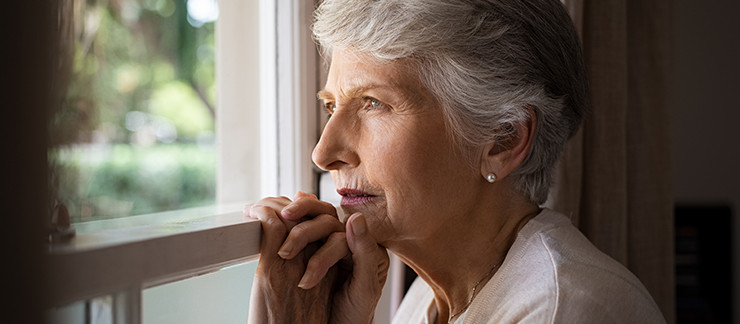Blog

Depression in Seniors
Seniors are often at a higher risk for depression. Living alone presents problems for seniors, but things are only made worse by the current pandemic. The self-quarantining and social distancing needed to prevent the spread of the disease has forced many of us to limit contact with family and friends. Not only are seniors at higher risk from complications from COVID-19, but this also puts them at a greater risk of the anxiety and depression that comes from isolation.
It is important to understand the causes of depression in seniors and how to help them through this difficult time.
Depression Caused by Isolation
During the pandemic, time spent with children and grandchildren has been severely limited. The everyday contact between seniors is limited to medical and healthcare staff, who must also take extra precautions so as not to spread the virus. While we do these things to protect the physical health of our senior population, their mental health suffers as a result.
According to the World Health Organization, depression is a major cause of illness across the globe. Over 264 million people suffer from it. Since our mental and physical health is so interconnected, ill-health in one causes ill health in the other. Links between depression and heart disease and dementia have also been established. Depression also increases the risk of other conditions such as hypertension, diabetes, and stroke. These things confront many seniors making depression an even bigger threat to their health.
Signs of Depression
The threat is great, but there are treatments available as well as steps to take to prevent depression. First, here’s what to look for in a senior who suffers from depression.
- Feelings of hopelessness
- Loss of interest in hobbies or activities
- Anxiety and irritability
- Restlessness and difficulty concentrating
- Fatigue
- Loss of appetite
- Substance abuse
Helping Seniors Deal with Depression
If you notice any of the symptoms listed above, don’t ignore them. Try talking to your loved ones about what they are going through. Listen to them, but also talk to their doctor about it. Treatment could involve medications, changes to daily activities, diet, and counseling.
If your loved one lives alone, they may benefit from living in an assisted care facility. Even though social distancing policies are enforced in these facilities, they will receive expert care and daily support. Assisted care also ensures they make it to their health appointments and are taking their medication as directed by their doctor. Staff is also on hand to assist with grooming, take care of shopping needs, and make sure guests receive proper nutrition.



